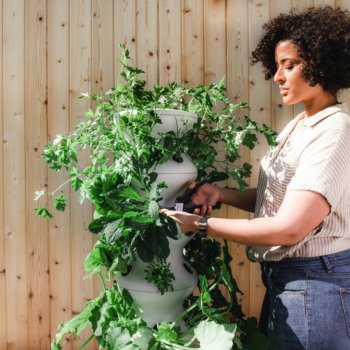HTA: Horticulture among few high-achieving UK industries in 2021

Despite the impact of Brexit and the pandemic, total garden centre sales for the year were up 23% from 2020 and 36% from 2019
27 January 2022
Horticulture was among the few high-achieving industries for the UK economy last year, but Horticultural Trades Association’s (HTA) members warn that an increasing cost base risks undermining the progress made
Data from the HTA’s latest Market Update report found that 2021 was a strong year for garden centre retailers, despite the double impact of post-Brexit trade restrictions and the pandemic.
While many sectors have seen profits damaged after businesses wrestled with a host of challenges and negative effects, its report said horticultural businesses were one of a handful of success stories for the UK economy in 2021.
Despite a host of Covid-19 restrictions, total garden centre sales for the year were up 23% from 2020 and up 36% from 2019. Within this, garden/gardening sales were up 32% on 2020 and up 65% on 2019. This is likely due to the increased demand for garden products, with HTA research showing that pandemic gardeners broadly stayed engaged in their new hobby. Garden centre catering sales for the year did however decline by 59% from 2019 as restrictions on hospitality saw them unable to operate their catering services at full capacity. Still, with nearly 60% of people in the UK having had their booster jab as of 3 January 2022, members are hoping that consumers will return to restaurants and cafes in greater numbers in the year ahead.
Consumers faced financial strain
When considered against the backdrop of the increased financial strains faced by consumers last year, the HTA said these sales figures are impressive. Consumer financial confidence remained relatively low in 2021 though considerably higher than in March 2020 and following the 2008 financial crisis; decreasing by only one point in December 2021 despite the looming threat of record high inflation, fuel price increases and general living expenses rising.
In the final month of 2021, Christmas category sales in garden centres were strong, up 33% on December 2020 and up 17% on 2019. Catering sales for the month of December were up 54% from December 2020, when lockdown restricted indoor dining, but down 41% from December 2019, pre-pandemic. This is likely because of concern about the spread of the Omicron variant in the lead up to Christmas.
Stifled growth plans
Looking to the year ahead, it seems there is a mood of cautious optimism. HTA member research shows that growers and retailers are committed to investing in their businesses (49% plan to invest in new infrastructure, buildings, and facilities in 2022), but they remain concerned that extra cost burdens and regulations could stifle this ambition.
With post-Brexit costs associated with importing plants increasing by between £25 million and £50 million last year, the price of shipping containers doubling over 2021, along with higher inflation, increasing wage costs and labour shortages coming through in 2022 it is likely to be a challenging year of business pressures. Around one in twenty roles at garden centres and ornamental grower firms are unfilled, meaning recruitment and retention will be a key factor in 2022 for how well members grow their businesses.
“Participation in gardening that exploded in 2020 during the lockdown was, mostly, sustained through 2021,” said David Denny, futures and sustainability manager at the HTA. “Looking to 2022, continuing higher costs for importing and exporting plants is a specific government-initiated burden on our industry, as well similar headwinds to those facing the wider UK economy, be that inflation of costs and competition for labour and skills. Despite this, our member businesses continue to lead the UK’s green recovery and are investing in future growth.”



 Print
Print










Fans 0
Followers